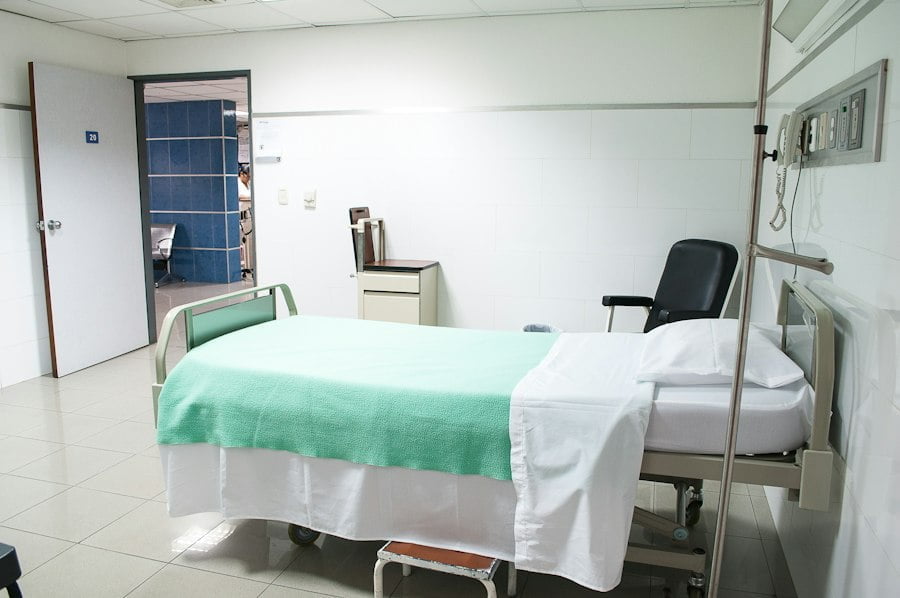
Connecting the Dots: The Link Between Physical Health and Reproductive Health
Physical health and reproductive health are two interconnected aspects of overall well-being that play a crucial role in our lives. Physical health refers to the state of our body and its ability to function properly, while reproductive health focuses specifically on the reproductive system and its functions. Understanding the connection between physical health and reproductive health is essential because they have a significant impact on each other. By maintaining good physical health, we can optimize our reproductive health and increase our chances of having a healthy pregnancy and successful fertility outcomes.
Key Takeaways
- Physical health and reproductive health are closely connected.
- Poor physical health can negatively impact fertility.
- Nutrition plays a crucial role in reproductive health.
- Exercise is important for maintaining good reproductive health.
- Stress, substance abuse, chronic illness, and lack of sleep can all have negative effects on reproductive health.
Understanding the Connection Between Physical Health and Reproductive Health
Physical health encompasses various factors such as nutrition, exercise, sleep, and overall well-being. Reproductive health, on the other hand, refers to the state of our reproductive system and its ability to function optimally. These two aspects are interconnected because our overall physical health directly affects our reproductive system’s functioning.
For example, maintaining a healthy weight is crucial for both physical and reproductive health. Obesity can lead to hormonal imbalances, which can negatively impact fertility and increase the risk of complications during pregnancy. Similarly, chronic illnesses such as diabetes can affect both physical and reproductive health by causing hormonal imbalances and reducing fertility.
The Impact of Physical Health on Fertility
Physical health plays a significant role in fertility outcomes. Various physical health issues can impact fertility, making it more challenging for individuals to conceive. Obesity, for instance, is a common physical health issue that can affect fertility in both men and women.
In women, obesity can disrupt hormonal balance, leading to irregular menstrual cycles and ovulation problems. It can also increase the risk of conditions like polycystic ovary syndrome (PCOS), which further affects fertility. In men, obesity can lead to reduced sperm quality and quantity, making it more difficult to achieve pregnancy.
Research has shown that there is a clear link between physical health and fertility. According to a study published in the journal Human Reproduction, women with a body mass index (BMI) above 35 had a significantly lower chance of getting pregnant compared to women with a healthy BM
Similarly, men with obesity have been found to have lower sperm counts and reduced sperm motility.
| Condition | Effect on Sperm Count | Effect on Sperm Motility |
|---|---|---|
| Obesity in Men | Lower | Reduced |
The Role of Nutrition in Reproductive Health
Nutrition plays a crucial role in reproductive health. Certain nutrients are essential for optimal reproductive function and can impact fertility outcomes. For example, folic acid is vital for women who are trying to conceive as it helps prevent neural tube defects in the developing fetus. Iron is another important nutrient that supports reproductive health by preventing anemia, which can affect fertility and pregnancy outcomes.
Maintaining a healthy diet is essential for optimal reproductive health. A diet rich in fruits, vegetables, whole grains, lean proteins, and healthy fats provides the necessary nutrients for reproductive function. It is also important to avoid excessive consumption of processed foods, sugary drinks, and alcohol, as they can negatively impact fertility.
The Importance of Exercise for Reproductive Health

Exercise is not only beneficial for physical health but also plays a crucial role in reproductive health. Regular physical activity has been shown to improve fertility outcomes and menstrual regularity.
Exercise helps regulate hormonal balance, reduce stress levels, and improve blood circulation, all of which contribute to better reproductive health. It can also help maintain a healthy weight, which is important for fertility.
Incorporating exercise into a daily routine is essential for optimal reproductive health. Engaging in activities such as walking, jogging, swimming, or yoga for at least 30 minutes a day can have significant benefits. However, it is important to avoid excessive exercise or intense workouts, as they can have a negative impact on fertility.
The Link Between Stress and Reproductive Health
Stress has a profound impact on reproductive health. Chronic stress can disrupt hormonal balance and interfere with the normal functioning of the reproductive system. It can lead to irregular menstrual cycles, ovulation problems, and reduced fertility.
Managing stress is crucial for optimal reproductive health. Engaging in stress-reducing activities such as meditation, deep breathing exercises, yoga, or spending time in nature can help alleviate stress and improve reproductive health outcomes. It is also important to prioritize self-care and find healthy coping mechanisms to manage stress effectively.
The Effects of Substance Abuse on Reproductive Health
Substance abuse can have severe negative effects on reproductive health. Drugs and alcohol can impair fertility and increase the risk of complications during pregnancy. They can also lead to birth defects, developmental issues, and long-term health problems for the child.
It is important to seek help if you or someone you know is struggling with substance abuse and seeking assistance for reproductive health issues. There are various resources available, such as support groups, counseling services, and treatment centers that specialize in helping individuals overcome substance abuse and improve their reproductive health outcomes.
The Connection Between Chronic Illness and Reproductive Health
Chronic illnesses can have a significant impact on reproductive health. Certain medications and treatments used to manage chronic illnesses can affect fertility and pregnancy outcomes. It is important for individuals with chronic illnesses to work closely with their healthcare providers to understand the potential effects on their reproductive health and explore alternative options if necessary.
There are resources available for individuals with chronic illnesses seeking help for reproductive health issues. Support groups, online forums, and specialized healthcare providers can provide guidance and support in managing both the chronic illness and reproductive health concerns.
The Role of Sleep in Reproductive Health
Sleep plays a crucial role in reproductive health. Lack of sleep or poor sleep quality can disrupt hormonal balance, leading to irregular menstrual cycles, ovulation problems, and reduced fertility.
Prioritizing sleep is essential for optimal reproductive health. Establishing a regular sleep schedule, creating a relaxing bedtime routine, and creating a sleep-friendly environment can help improve sleep quality. It is also important to practice good sleep hygiene, such as avoiding electronic devices before bed and creating a comfortable sleep environment.
Taking Care of Your Physical Health for Better Reproductive Health
In conclusion, understanding the connection between physical health and reproductive health is crucial for optimizing fertility outcomes and overall reproductive well-being. Maintaining good physical health through proper nutrition, regular exercise, stress management, and healthy lifestyle choices can significantly improve reproductive health.
By prioritizing physical health, individuals can increase their chances of conceiving, have healthier pregnancies, and reduce the risk of complications. It is important to take proactive steps towards maintaining good physical health and seeking help when needed to ensure optimal reproductive health outcomes.
FAQs
What is physical health?
Physical health refers to the overall well-being of an individual’s body, including their physical fitness, nutrition, and ability to perform daily activities without experiencing fatigue or pain.
What is reproductive health?
Reproductive health refers to the state of complete physical, mental, and social well-being in all matters relating to the reproductive system. This includes the ability to have a satisfying and safe sex life, the ability to reproduce, and the freedom to decide if, when, and how often to do so.
How are physical health and reproductive health related?
Physical health and reproductive health are closely related because reproductive health is a component of overall physical health. Good physical health can positively impact reproductive health, and vice versa.
What are some factors that can affect physical and reproductive health?
Factors that can affect physical and reproductive health include genetics, lifestyle choices (such as diet and exercise), environmental factors (such as pollution), access to healthcare, and socioeconomic status.
What are some ways to maintain good physical and reproductive health?
Ways to maintain good physical and reproductive health include practicing safe sex, getting regular check-ups and screenings, eating a balanced diet, exercising regularly, getting enough sleep, managing stress, and avoiding harmful substances such as tobacco and drugs.


















